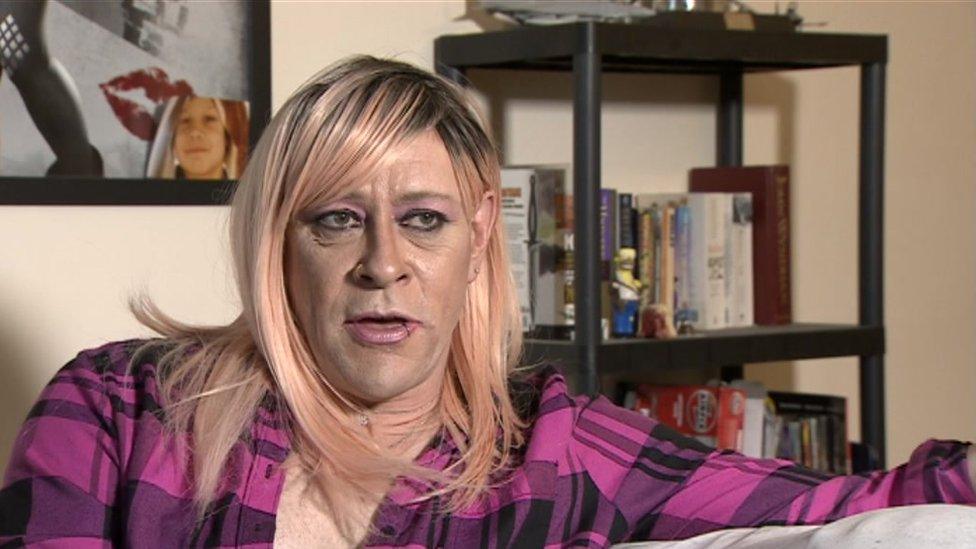Life on an NHS transgender waiting list
- Published
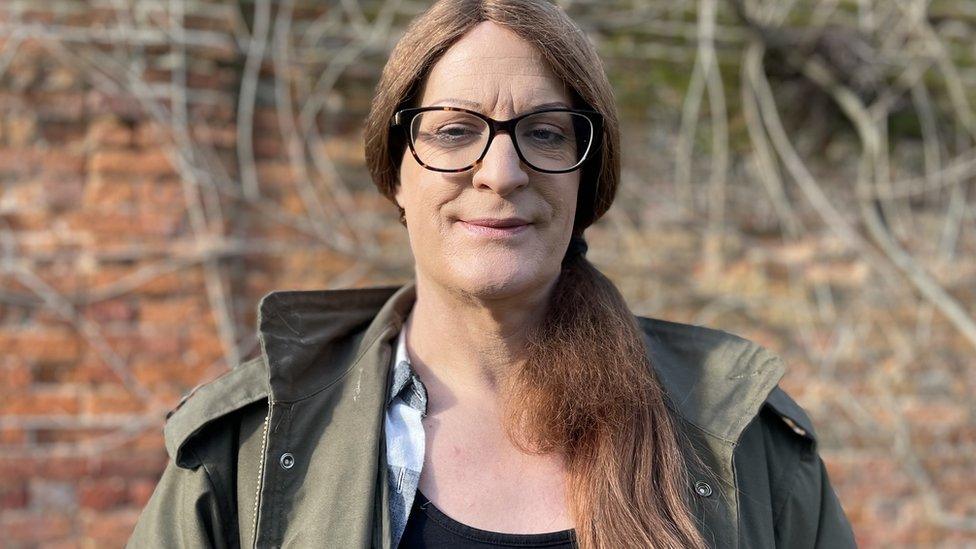
Dee decided in 2019 that she wanted to transition
Waiting lists for all kinds of NHS treatments have been getting longer and longer, but for trans people the wait for a first appointment at a gender identity clinic can now be five years or more - despite a target of just 18 weeks. Here transgender people explain to the BBC how their wait has turned into a nightmare of severe anxiety, despair and in some cases, suicidal thoughts.
"It's a real feeling of just sinking into nothing," said 50-year-old Dee Greer, from Maidstone.
It was in 2019, after two failed marriages and two children, that she decided she wanted to medically transition and was referred to the Tavistock and Portman NHS clinic in London.
She has been on the clinic's waiting list for five years and is yet to see a doctor.
"It's a very sad situation to be in, waiting for something that's going to make your life real, whole, you don't feel fake all the time," she said.
Gender identity clinics are where people experiencing a mismatch between their biological sex and their gender identity - called gender dysphoria, external - are referred to by their GP.
At the clinics, doctors will decide if they can confirm the diagnosis of gender dysphoria. If they can, the patient can begin treatment, external, which can vary from changes to their voice to hormone treatment or surgery.
'In the abyss'
For head gardener Dee, joining the list sparked a feeling of euphoria which faded as the wait got longer.
"You're just lonely really in some respect," she said.
"You're just in this abyss waiting for somebody to phone you or somebody to send you a letter that you don't know when it's going to be."
After a five year-wait, she has recently been told she will be able to see a doctor later this month. She is looking forward to her appointment but said that over the years she had to make a real effort to see her glass "half-full".
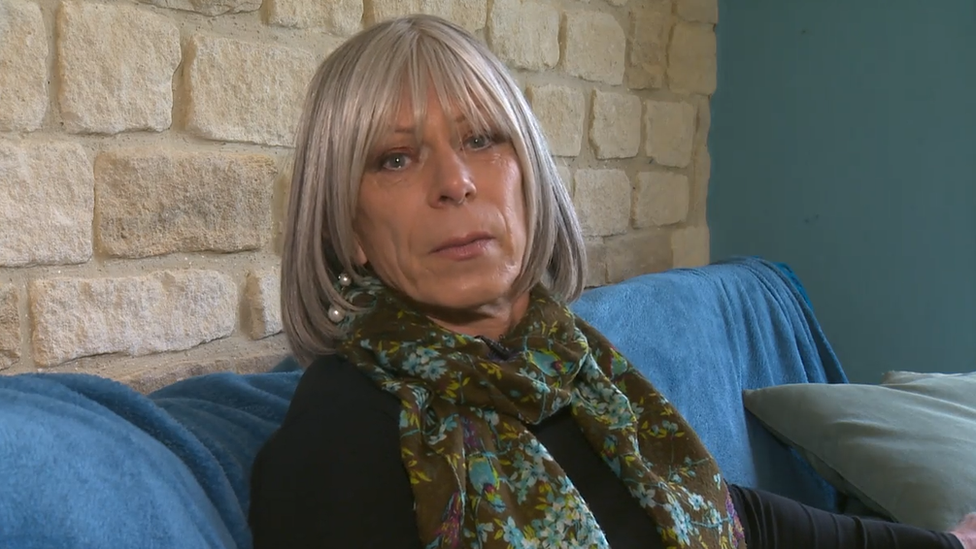
Chrissie said she found comfort in helping younger transgender people
Chrissie Chevasutt, 65, from Oxford, said she had resolved that she probably would not transition and has given up on even joining a list.
She said that given her age and the current waiting times, she would probably be too old to undergo surgery.
That thought has sparked pain, severe anxiety and suicidal thoughts, she said.
"It crushes you. Over Christmas I spent one or two days just starring at the wall. Just totally drained, empty, nothing left, batteries flat," she added.
She said joining a waiting list would allow her "to dream".
"But I know that is a hope that is never going to be realised whilst the NHS trans healthcare remains in the state it is now."
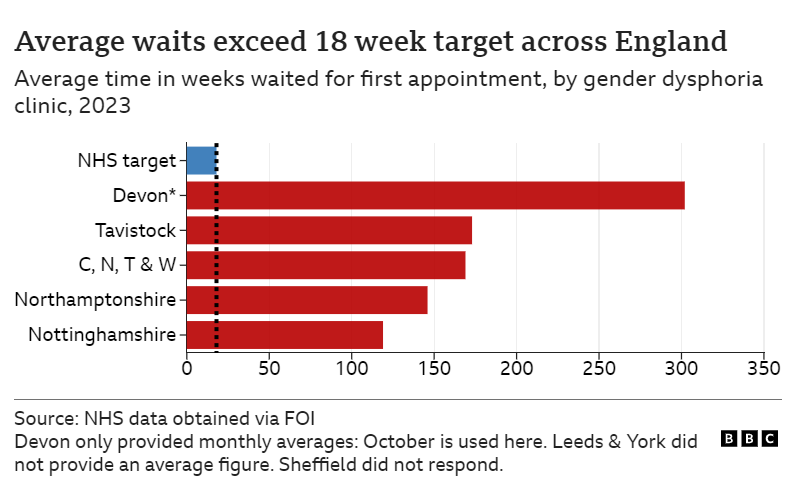
Data obtained by the BBC through Freedom of Information requests shows the average waiting time at the majority of NHS gender identity clinics in England has at least doubled between 2018 and 2023.
In Scotland, the average waiting time at the Sandyford Gender Identity Service in Glasgow has quadrupled, from 14 months to four years and nine months. Belfast Health and Social Care Trust said its current waiting time was six years and three months, despite a target of 13-weeks.
Clinics in London and Nottinghamshire have seen referrals increase by 22% and 49% respectively since 2018, but other clinics have not recorded any jumps in referrals. Despite that, the number of referrals has been greater than discharges since 2018.
Waiting times have continued to grow throughout 2023. Patients attending their first appointment in November 2023 were referred an average of seven years and three months earlier, according to NHS data, external.
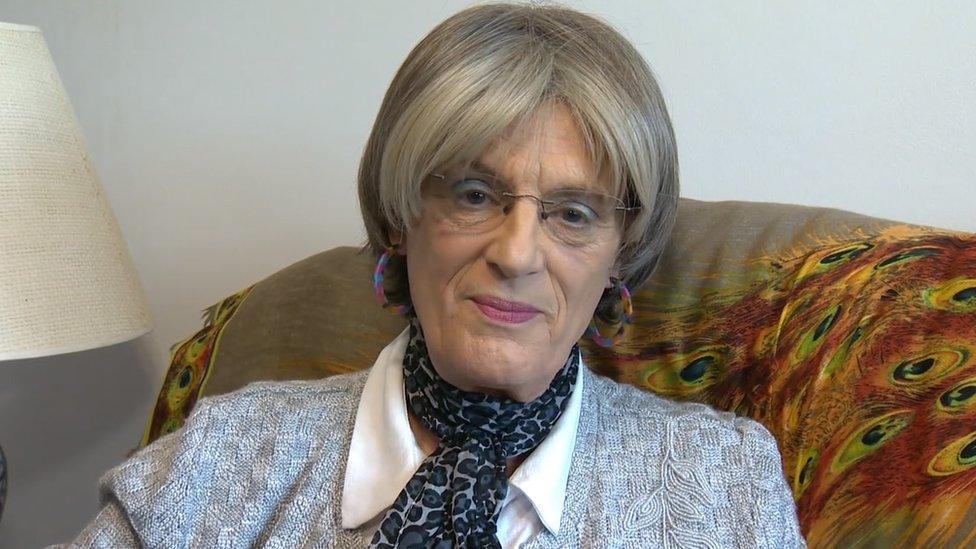
Nicola said she hoped the situation would improve
Nicola Thompson, 67, from Weston-super-Mare, has been on the waiting list for the past three years.
She said she was not sure she would ever be able to transition, but was adamant to remain on the waiting list for the clinic in Exeter.
She said: "This is a service that the NHS does offer and can offer so I think the entitlement is there. I think in a way by pulling out it can be seen like they don't really want it whereas of course we do really want it."
Andrea Brookes, 62, from Newbury, considers herself lucky as she was able to afford private treatment.
"I needed to come out of that box and the thought that I was going to be stuck inside there for so much longer...it was frightening," she said.
"If I wasn't able to get out of there I was going to disappear, I wasn't going to be able to be me. I'd be somebody else, somebody who looked like me, but not me."
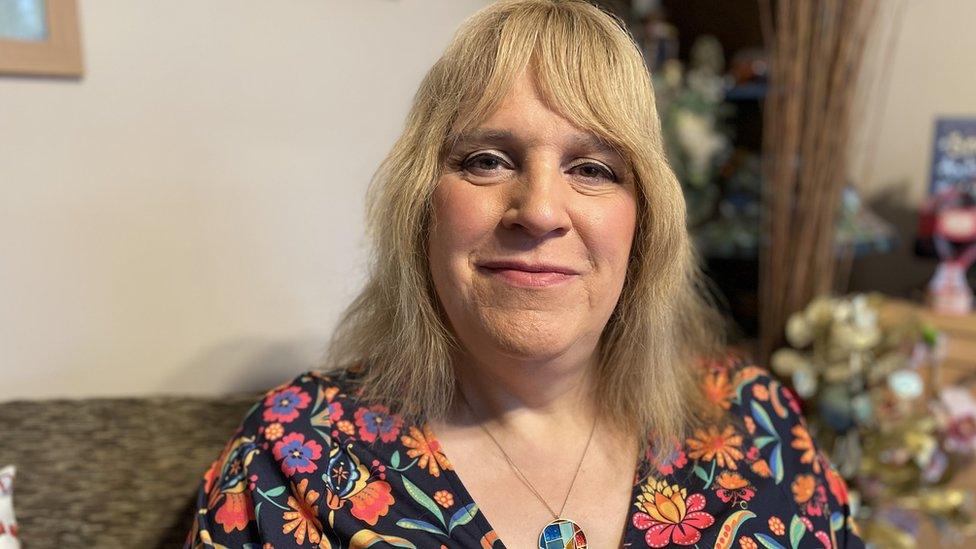
Andrea runs support groups across Berkshire
Last year she went to a private clinic in Spain for treatment, which cost her £15,000.
She has said she has since felt "at peace" with herself.
"There was some release. I was who I was supposed to be."
For some though, the wait can be too much. In late 2023, a coroner concluded that waiting times contributed to the death of 20-year-old Alice Litman, from Brighton. She killed herself while on a clinic's waiting list.
The wider NHS picture
Transgender health services are one of several NHS services that have recorded increasing waiting times over the years.
The number of cases on the overall NHS list for consultant-led elective care, reached 7.6 million in January 2024, with some waits being more than two years, according to the most recent data, external.
Patients waiting for hospital treatment have also been waiting longer than the target 18 weeks in most cases.
According to the latest available data, more than 31,000 transgender people were on a waiting list for a first appointment at a gender identity clinic in England towards the end of 2023.
UK charities have urged swift action to deal with the problem.
Cleo Madeleine, from Gendered Intelligence, said the figures were "shocking but not surprising" and the charity had been raising concerns about resources for years.
She said: "We know that there is a mental health crisis in the trans community. I think people feel they are treading water.
"We shouldn't have got to this point but we are here, and we are not going to get out of it quickly. What we need is to think about how to improve these services and how to support the people on these waiting lists."
She said the NHS "was not the bad guy" and resources had to come from government.
Jane Hamlin, president emerita of The Beaumont Society, said: "It's not a competition. The NHS has a really difficult job. We don't want special treatment. We just want to be treated equally along with everyone else that has needs from the national health service."
Apologies and new investment
An NHS England spokesperson said the NHS had been working to bring down waiting lists across all services.
It added: "NHS England has increased investment in gender services by around 130% over the past five years and increased the number of adult clinics from seven to 12.
"The rollout of these new clinics is already helping to tackle long waiting times."
The Belfast Health and Social Care Trust said it would like to sincerely apologise to everyone affected by delays at the Brackenburn Clinic.
It said: "Demand for the service has increased significantly over recent years and, regrettably this has led to long waiting times.
"We fully accept that the waiting time for gender services is unacceptable."
NHS Greater Glasgow and Clyde said: "While our staff are working extremely hard to address these challenges, there may be times where patients need to wait longer than they would expect, and we apologise for that.
"However, we would like to reassure people that all services at the Sandyford clinic remain open and we continue to see patients as quickly as we can."
The Department of Health and Social Care in England and the Department of Health in Northern Ireland have been approached for comment.
All photos subject to copyright

If you're affected by the issues in this report, you can find support from BBC Action Line.

Follow BBC South on Facebook, external, X, external, or Instagram, external. Send your story ideas to south.newsonline@bbc.co.uk or via WhatsApp on 0808 100 2240, external.
- Published20 March 2024
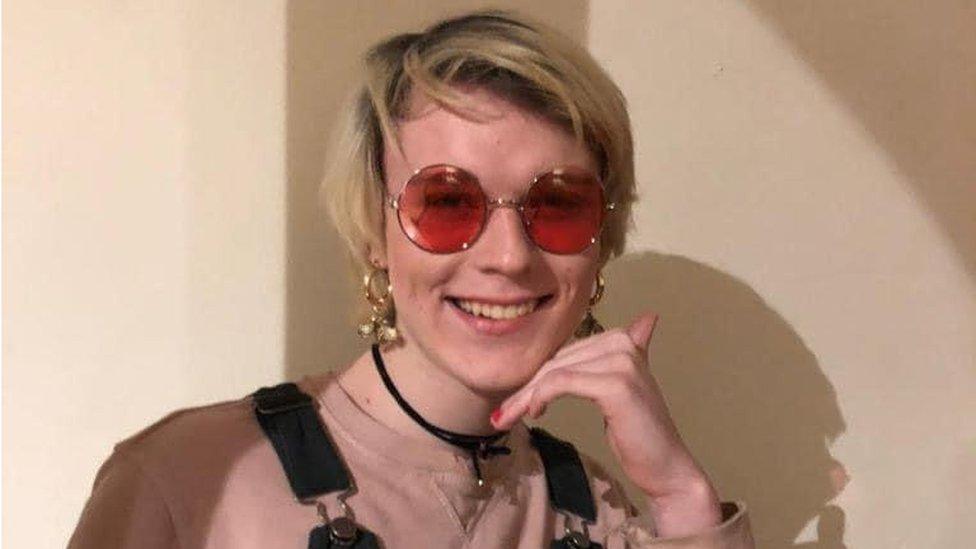
- Published21 February 2024
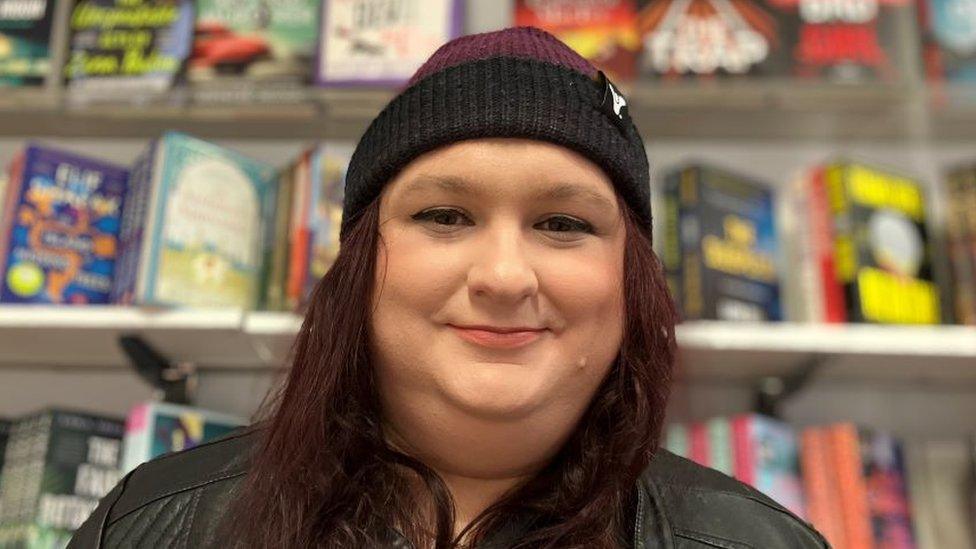
- Published16 December 2022

- Published9 January 2020
